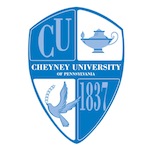 Historically Black Cheyney University of Pennsylvania has announced the launch of the Life Sciences and Technology Hub. Cheyney has seen the percentage of students majoring in STEM fields increase from 13 percent in the 2017-18 academic year to 25 percent entering the fall 2021 semester.
Historically Black Cheyney University of Pennsylvania has announced the launch of the Life Sciences and Technology Hub. Cheyney has seen the percentage of students majoring in STEM fields increase from 13 percent in the 2017-18 academic year to 25 percent entering the fall 2021 semester.
The LSAT Hub marks the culmination of efforts to recruit private biological, chemical, and other STEM companies to campus, with an eye toward preparing students for careers through academic programs and research experiences.
The Hub, located in the school’s Science Center, will provide specific programming designed to support science students and connect them with resources and guidance to help them acclimate to scientific studies and career work. To date, eight companies have either set up shop or will establish operations on campus in the coming months — creating numerous paid, hands-on internship opportunities. Cheyney students will work directly with these companies, matching in-class instruction with invaluable real-world experience in their respective industries.
“It is important that students and their families are aware of the comprehensive support system that the Hub is designed to create for students,” said Cheyney President Aaron A. Walton. “The program will afford them the opportunity to engage more deeply with the faculty and our corporate partners, and help them prepare for and explore career options. This is exactly the vision we had in mind when we began inviting partners to locate on campus over two years ago.”
Vanessa Atkins, the director of the LSAT Hub, added that she wants students to consider the Hub their home, a place where a student can go to get direction and information they need to advance from level to level. “A lot of people don’t realize the necessity of having a guide as you try to navigate the process of choosing a career that is going to be fulfilling and enriching,” she said. “Students are making decisions about what they’re going to do for the rest of their lives. We owe it to them to help them explore career options and interact with science professionals so that they can hone their networking skills and increase their opportunities.”

